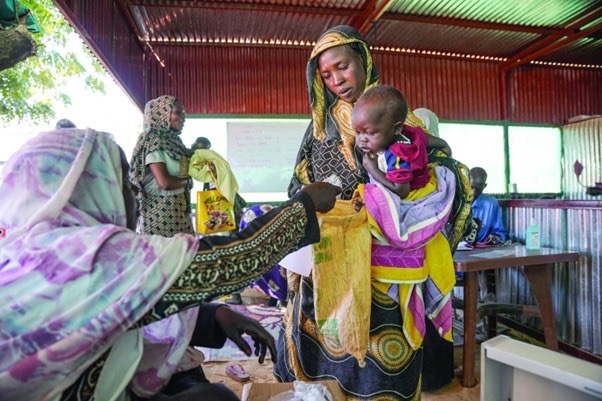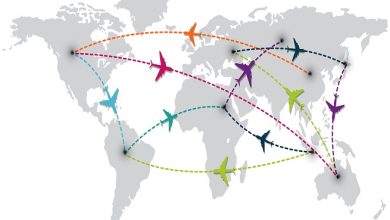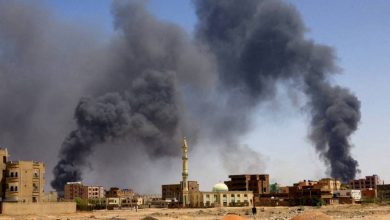Experts Warn: 755,000 People at Risk of Famine in War-Torn Sudan

A new report shows that the hunger crisis in Sudan is historically dire, with indications that Famine may already be underway. More than half of Sudan’s population – 25.6 million people – are estimated to face crisis or worse levels of severe hunger and require immediate humanitarian assistance, the highest levels of food insecurity ever measured in the country by international experts. 755,000 people are on the brink of starvation. The data from the report suggests we are facing a crisis that is comparable to – and potentially worse than – the Famine in Ethiopia that shocked the world’s conscience in the early 1980s.
This is a man-made crisis – directly caused by the 14 months of conflict between the Sudanese Armed Forces (SAF) and the Militia of the Rapid Support Forces (RSF), and the systematic obstruction of humanitarian aid by both parties.
Despite both parties’ deliberate denial of life-saving assistance to the Sudanese people, USAID partners continue to provide food, malnutrition screening and treatment for young children, emergency health care, and other critical humanitarian assistance to people in need throughout the country. We are working with our partners to reach the most vulnerable, in spite of the obstructions, and we are prepared to surge assistance to hard-to-reach areas as brave humanitarian workers gain access. The United States has provided more than $1.4 billion in humanitarian assistance to support the people of Sudan since October 2022.
But getting aid flowing on the scale necessary to meet these historic levels of need will require increased and sustained cross-border assistance, as well as greater cross-line assistance to move food, medical supplies, and other life-saving commodities between SAF and RSF territory.
The SAF and RSF must negotiate an immediate ceasefire to facilitate predictable and sustained humanitarian access to all Sudanese and remain at the negotiating table to end this conflict. The United States continues to stand with the people of Sudan suffering as a result of this conflict and will do all that we can to get life-saving aid where it is needed most.
According to a World Food Programme statement, the only border crossing for trucks to bring in food to the North Darfur area is from Tine in Chad, but intensified fighting is making that more difficult.
International experts portrayed a grim picture for war-torn Sudan, warning in a report Thursday that 755-thous and are facing famine in the coming months, amid relentless clashes between rival generals.
The latest findings come from the Integrated Food Security Phase Classification, or IPC, an initiative first set up in 2004 during the famine in Somalia that now includes more than a dozen U.N. agencies, aid groups, governments and other bodies.
The report said that 8.5 million people are facing extreme food shortages after 14 months of conflict in Sudan.
The northeastern African country descended into chaos in April last year when simmering tensions between the country’s military, led by General Abdel-Fattah Burhan, and a notorious paramilitary group, the Rapid Support Forces (RSF), commanded by General Mohamed Hamdan Dagalo, exploded into open fighting in the capital, Khartoum, and elsewhere in the country.
The devastating conflict has killed more than 14-thousand people and wounded 33-thousand others, according to the United Nations. Rights activists say the toll could be much higher.
The conflict created the world’s largest displacement crisis with more than 11 million people forced to flee their homes. Human rights experts working for the United Nations said that both warring sides used food and starvation as a war weapon.
Overall, 25.6 million people, more than half of the country’s 47 million population, face “crisis or worse conditions” between June and September. It warned about a risk of famine in 14 areas “if the conflict escalates further, including through increased mobilization of local militias.”
The conflict has been marked by atrocities, which rights groups say amount to war crimes and crimes against humanity.



